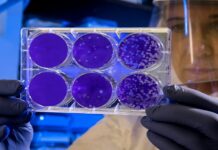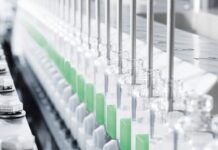Adocia, a biotechnology company specializing in the development of ‘best-in-class’ medicines from already approved therapeutic molecules, in particular proteins and oncologic drugs, announces today that it has been granted two patents.
The first patent is granted in Japan for the BioChaperone PDGF composition and the second in the United States for the BioChaperone polymer. Both patents will protect Adocia’s findings in the field of chronic wound healing, especially for diabetic foot ulcers.
The BioChaperone PDGF product has been successfully tested in a phase II clinical trial in India for the treatment of diabetic foot ulcers. This product is protected by two families of patents. The first one covers the complexes between BioChaperone polymers and PDGF; the second covers BioChaperone polymers.
The patent on the complexes was granted in Europe and the United States in 2012 (cf. press release of June 13, 2012). The inclusion of Japan now extends the coverage to 29 countries. Twenty-three are in Europe and the rest are the United States, Australia, Mexico, Russia and South Africa. This patent provides protection until September 26, 2026.
The BioChaperone polymers, a proprietary technology specifically developed by Adocia, are covered by the second patent. The US Patent and Trademark Office (USPTO) recently granted this patent. Protection of these BioChaperone polymers is now established in the United States, Australia, China, Russia, France and South Africa. It is valid until September 26, 2027.
“We are very pleased with the positive outcome on two of our strategic patent families, especially because they have been granted by the very demanding national American and Japanese patent offices. Our product for treating diabetic foot ulcer is patent protected until at least 2026,” said Remi Soula, director of business development and intellectual property at Adocia. “The granting of these patents consolidates our strong portfolio of 22 patent families, of which six have been granted US patents.”
“We are actively pursuing the clinical development of the BioChaperone PDGF product for the treatment of diabetic foot ulcer. These patents cover the major markets we are targeting. Moreover, we hope to receive authorization to launch the phase III clinical trial in India very soon,” said Olivier Soula, delegate general director and R&D director.
About diabetic foot ulcer:
Diabetic foot ulcer is one of the main complications of diabetes. Worldwide, more than 382 million individuals are currently suffering from diabetes (with a forecast of 592 million individuals by 2035, i.e. a 55 per cent increase, reaching 70 per cent in emerging countries (International Diabetes Federation). An estimated 15 per cent of diabetic patients will develop diabetic foot ulcer in their life (Ramsey et al, 1999). The advanced wound healing market reached USD 3.4 billion in 2010 (BCC Research).
About Adocia:
To be a global leader for the formulation of therapeutic proteins
Adocia is a biotech company specialized in the development of best-in-class drugs from the innovative formulation of certain already-approved therapeutic proteins.
Adocia is specialized in insulin therapy and the treatment of the diabetic foot, one of the main complications of diabetes.
Adocia successfully completed two phases I and II studies on the formulation of a fast-acting human insulin and obtained promising phase I/II results on a diabetic foot ulcer-healing product. Furthermore, in mid-November Adocia launched a Phase I clinical trial on a unique combination of fast-acting insulin and slow-acting insulin, for an optimal insulin therapy with one single product.
Based on its experience and recognized know-how, Adocia has extended its activities to the formulation of monoclonal antibodies, which are gold standard molecules for the treatment of numerous chronic pathologies (oncology, inflammation, etc.). In this field, Adocia is engaged in collaborative programs with two major pharmaceutical companies.
Fight cancer by enhancing oncology treatments targeting
Late in 2013, Adocia acquired an exclusive license on a nanotechnology, which improves oncology treatments efficacy by targeting their action to solid tumors. This nanotechnology, called DriveIn(R), is remarkably efficient in carrying active molecules and delivering them within solid tumors. This new platform in nanotechnology is an exceptional opportunity to enter the oncology market by improving the efficacy of already approved treatments.
Adocia develops proprietary products based on doxorubicin and docetaxel, two of the most used anti-tumoral treatments, which could greatly benefit from an enhanced intra-cellular delivery. Adocia will also propose the DriveIn technology to pharmaceutical companies to optimize the efficacy of their own proprietary molecules.
“Innovative medicine for everyone, everywhere”
Through its BioChaperone(R) state-of-the-art technological platform, Adocia intends to enhance the effectiveness and safety of therapeutic proteins and their ease of use for patients, with the aim of making these medicines accessible to the broadest public.
Adocia’s therapeutic innovations aim at bringing solutions in a profoundly changing global pharmaceutical and economic context, characterized in particular by the increased prevalence and impact of the targeted pathologies, population growth and ageing, the need to control public health expenditures and increasing demand from emerging countries.
Adocia is listed on the regulated market of Euronext in Paris and its share included in the Next Biotech index.
For more information: http://www.adocia.com



















